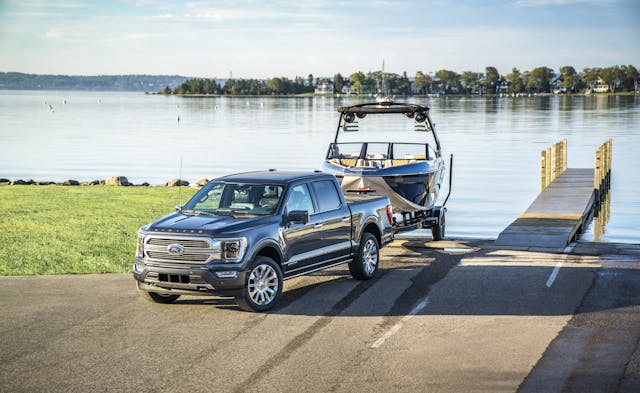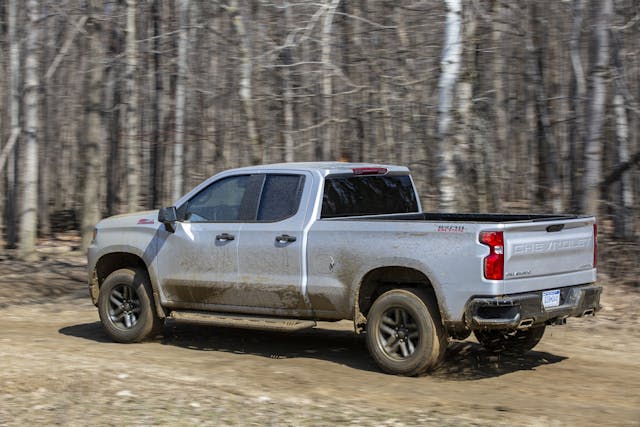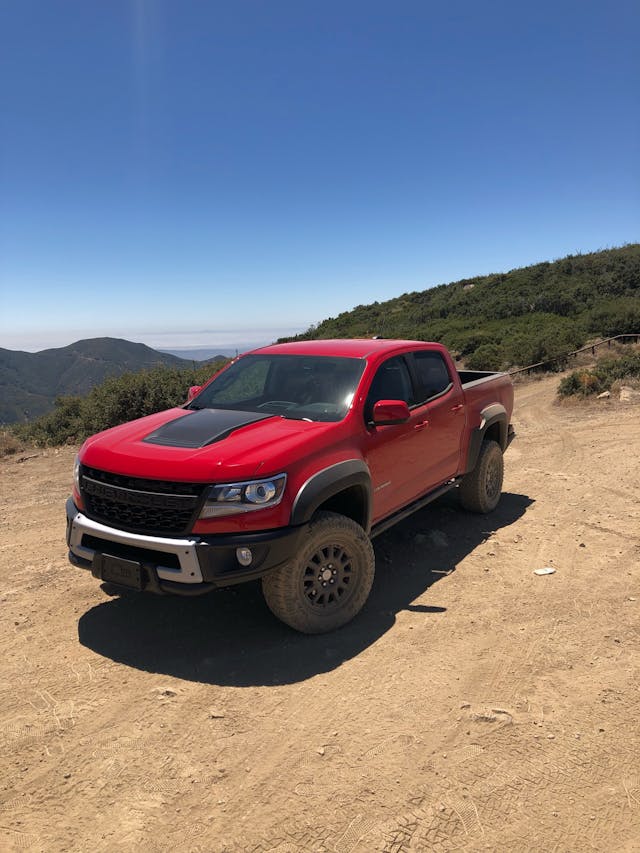Media | Articles
Canada’s pickup trucks are under attack
When you’re a professional opinion-haver about all things urban, you may not possess an understanding of life beyond your own myopic viewpoint. Marcus Gee, Toronto columnist for The Globe and Mail, recently decided that pickup trucks are offensive to his delicate metropolitan sensibilities, projecting his insecurities upon drivers of these most utilitarian vehicles. He suggests that truck drivers, simply by driving a pickup, are asserting their “dominance and division” upon other drivers.
I’m not surprised that a righteous, city-dwelling newspaper columnist would arrive at these conclusions. However, for someone who relies upon Toronto’s not-terrible public-transit system, Gee admits to puerile behaviour when he chooses to get behind the wheel, an attitude which makes him a danger to other drivers on the road.
Gee’s column is entitled, “Pickup trucks are a plague on Canadian streets,” and while I’m not sure in which neighbourhood he resides, mine is filled with sport utilities of all luxury marques, including the occasional Lamborghini Urus, lined with executive sedans, and populated with plenty of pickups, nearly all of which have obvious signs of commercial use.
If you’re unfamiliar with the nature of Ontario’s capital, let me explain the nature of this city. Toronto is Canada’s de facto commercial capital, which leads residents to believe it is the essential Canadian city and, by extension, the centre of the universe. Or, at least, their universe.

Toronto the Good is my favourite nickname for this town, an epithet inspired by the city’s self-determined moral superiority in the nineteenth century. Not much has changed in the way of morality and even today, Toronto’s elite enjoys imposing its views upon its neighbours in a way that can only be described as authoritarian.
Marketplace
Buy and sell classics with confidence
Torontonians seem to believe the refrain of local politicians that the city is world class, as if it’s something in the water. They buy into the rhetoric with unquestioning fervour, which can only be explained if they haven’t visited an actual world class city. Even during a pandemic, this world class city shutters its main subway line, clogging its busiest thoroughfare with empty buses every weekend.
Despite Toronto’s fulsome sense of self, it’s a wonderful city in which to raise a family and, if you’re looking for a safe, sanitized experience of a North American city, I highly recommend a visit.
Even when its sidewalls were pressed firmly into the curb, its mirrors folded, and its attitude otherwise perfectly legal, deranged cyclists frequently spat on my old Nissan Titan XD because it wasn’t parked to their satisfaction. Admittedly, the city is certainly an odd place for a driving enthusiast like me to reside, but I do have other considerations in my life beyond cars.
Just like Americans, Canadians buy and use trucks for a wide range of reasons, though among a recent poll of my Canadian truck-driving friends, intimidating other drivers isn’t among them. Unlike Gee, truck owners I know use their pickups for Truck Things. My friends’ trucks pull trailers filled with racing cars. They haul boats. They carry gear for hunting trips.

Trucks have been under attack for some time now and Gee’s narrow view on the subject is typically modern Canadian—full of feelings and light on facts—and doesn’t permit personal choice. Apparently, Gee was a journalist at one time, but has long forgotten journalistic practice.
In his hit piece, he cites a quote by my colleague Brendan McAleer about the popularity of Ford’s ubiquitous F-150 pickup. Gee, however, omits something important. As McAleer told me: “The piece the SR-71 ‘measurement’ was pulled from was a review of the F-150 Hybrid. I did some other comparisons in it: ‘This hybrid F-150 … has slightly better city fuel economy than a Subaru Outback XT. A combined 570 lb-ft of torque means this truck will get up to 100 kilometres an hour as quickly as a Volkswagen GTI, and it stops from highway speeds over about the same distance as a Toyota Prius.’”
Trucks can be efficient and safe? Who knew? Evidently not Gee.
Gee suggests that these six-figure symbols of toxic masculinity are a danger to pedestrians, but the last time I checked, it’s the expensive models that roll with a full suite of safety features. Chevy’s popular Silverado can be fitted with technology that will not only recognize pedestrians in its path, but also brake to avoid a collision. That option, along with cameras and sensors, enhances pedestrian safety.

Furthermore, Gee suggests that not only are the most massive trucks common, but also states that a 7000-pound pickup is THREE TIMES the weight of a Honda Civic. If Gee had remembered to apply basic fact-checking in the drafting of his story, perhaps he would have discovered that the latest Honda Civic weighs in at over 3000 pounds.

The last Chevy Silverado I drove was a new Trail Boss and, according to GM, its curb weight is a tick over 5100 pounds. That’s nearly identical to the Bentley Flying Spur V8 and about 400 pounds lighter than the Rolls-Royce Ghost, but is there fun in picking on those genteel marques? For Gee, it’s much easier to hate those evil truck drivers.
As McAleer reminded me, modern trucks can be everything to their owners: luxurious, comfortable, safe, and convenient. “Are there some adult conversations to be had about industry regulations for sight lines, overall fuel-economy requirements, and general safety standards?” McAleer says. “And is increasing consumer debt load from buying more vehicle than you actually need a growing problem? Sure, in the same way that a professional driver like yourself might have some opinions about driver training requirements before turning someone loose in a Hellcat or a Shelby Mustang. But discussing these things requires nuance and critical thinking. Both are sadly in short supply in today’s hot take culture.”
Indeed, and I can’t fathom suggesting that I know better than Canadian car and truck buyers, although I’ve got some expertise in the area. Ill-informed, condescending, and hateful pieces like Gee’s don’t advance that conversation. Suggesting that driving a pickup causes division in this country is absurd, but I know what divides a community: Baseless hot takes on the truck-buying habits of Canadians.








